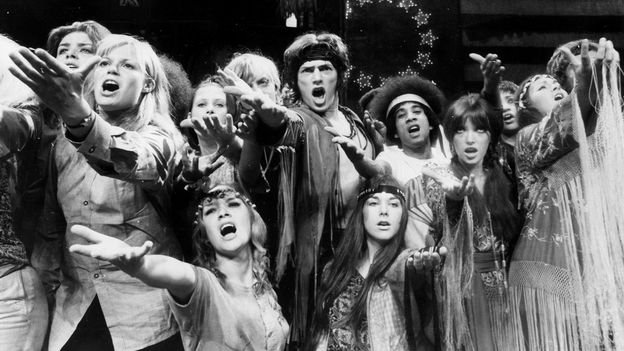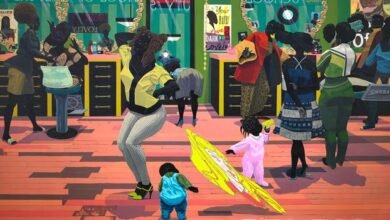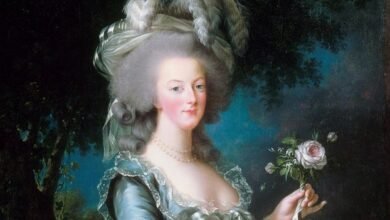How ‘shocking’ musical Hair escaped UK censorship


The formal innovations might not have worried the Lord Chamberlain too much, but some of the songs’ lyrics would definitely have had him reaching for his blue pencil, especially those with the “four-letter words, explicit sexual content, rituals, drugs” mentioned by Miller. Hair has its share of uplifting flower-power anthems, notably Aquarius and Let the Sun Shine In. But it also has its share of subversive, taboo-busting songs. Sodomy is a soulful gospel number that lists a variety of sex acts. In Hashish, the cast chants the names of numerous narcotics, and two songs, Black Boys and White Boys, are cheekily lascivious paeans to inter-racial relationships. There is no way that the Lord Chamberlain would have approved of any of those.
Luckily for O’Horgan, many British playwrights, producers and politicians had long been questioning why one undemocratic body could still censor so many artistic endeavours. The practice dated back to 1737, when the Theatre Licensing Act was passed, largely because the Prime Minister, Robert Walpole, was tired of being caricatured in such productions as John Gay’s The Beggar’s Opera. The Lord Chamberlain’s Examiners of Plays had the job of reading scripts and visiting theatres to ensure that nothing would be permitted to scandalise the public – or to satirise the government.
Inevitably, many of the teams’ decisions were problematic. In the 1930s, plays lampooning Adolf Hitler were rejected so as not to offend the Nazi regime. In the 1950s, London’s Royal Court Theatre regularly clashed with the Lord Chamberlain over kitchen-sink dramas by such “angry young men” as John Osborne. And in the 1960s, the Royal Court kept trying to find loopholes so that it could stage the provocative works of Joe Orton and Edward Bond. “For many years, we haven’t been able to do a lot of plays at this theatre in the language in which the author wrote them,” the Royal Court’s artistic director, William Gaskill, told the BBC in 1968. “There have been a lot of very minor, irritating cuts of the more virile language of plays.”
More like this:
• The ‘obscene’ banned book that became a bestseller
• The story of the first ever Glastonbury Festival
• The 1960s sex scandal that rocked British politics
The time had come for a change – this was, after all, the dawning of the age of Aquarius – and after years of protests, parliamentary debates and committee meetings, the new Theatres Act was passed. The age of the Lord Chamberlain was over. “The stage is all set for some challenging experiments,” reported the BBC. “There’s no doubt about it. Playgoers are entering a new, freer era in theatre history. They won’t have long to wait before those behind the scenes show just how free they’re going to be.”
Source link




